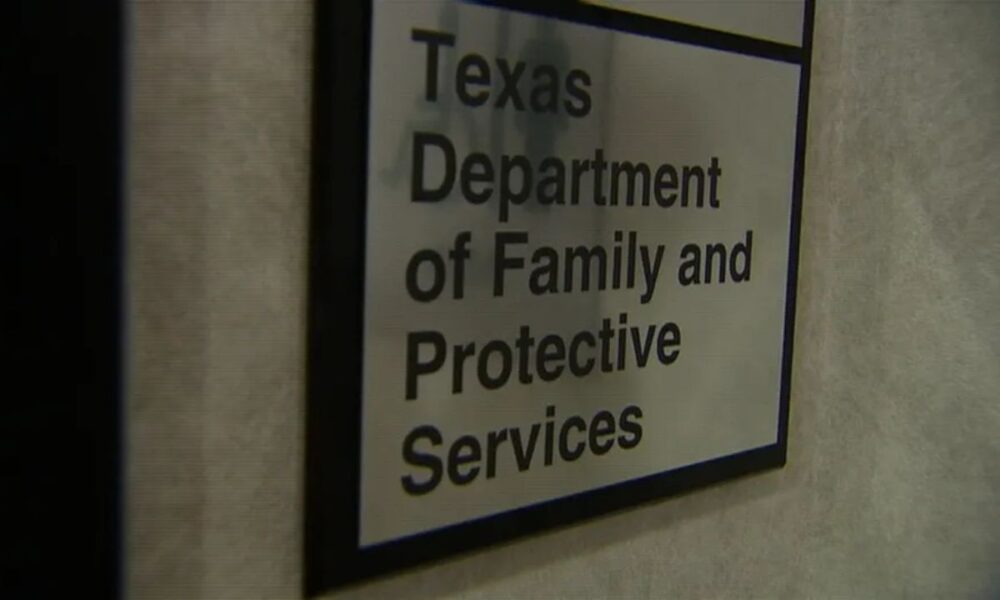(Texas Scorecard) – A Texas Child Protective Services reform advocate says the state has been steadily improving its family safety efforts as lawmakers have implemented legislative changes.
Carrie Wilcoxson is a former investigator for the Department of Family and Protective Services and currently provides consultation services to attorneys and parents dealing with DFPS cases.
During her time at DFPS, Wilcoxson said she identified “system gaps” as well as “missed opportunities” to do better. Those observations have driven her deep involvement in efforts to reform the agency.
Wilcoxson advocated for two measures passed this session that are at the forefront of reform efforts—Senate Bill 1141 by State Sen. Borris Miles (D–Houston) and House Bill 140 by State Rep. Candy Noble (R–Lucas).
Both pieces of legislation have been sent to Gov. Greg Abbot, who is expected to either sign them or let them pass into law without his signature.
SB 1141 will require that, prior to an adversary hearing, the court will confirm with the alleged perpetrator that they have been informed of their rights by DFPS.
Among those rights are the ability to audio or video record their initial interview with the agency and to request an administrative review of DFPS’ findings.
The requirement that alleged perpetrators be informed of their rights prior to their first interview was another reform effort previously pushed by Wilcoxson which became law in 2021 via HB 135.
“It’s a critical time. It’s a critical hearing, because if it’s a crap case where they got it wrong, this is the hearing where everybody gets to argue the merits of the removal,” Wilcoxson said of adversary hearings.
Notifying alleged perpetrators of their right to an administrative review is also vitally important.
According to Wilcoxson, past data showed that “50 percent of the original CPS investigative findings were overturned if they went through the appeal process.”
HB 140, meanwhile, will establish the Child and Adult Protective Investigations Advisory Committee within DFPS. The committee will be responsible for improving the consistency, fairness, and accuracy of DFPS investigations.
The new 13-member committee will include representatives from the offices of the governor, lieutenant governor, and speaker of the House. Other members will include senior DFPS officials, regional investigative personnel, and a district judge.
Primary goals include developing standardized procedures, ensuring investigations comply with due process rights, and creating new training programs for investigators. The committee will also provide a public forum for input.
Wilcoxson noted that the panel is an essential step toward further implementing the 2023 investigative training law, SB 1447, which mandates instruction for DFPS officers on the rights of alleged perpetrators.
“We have spent the last two decades focused on foster care, which is catching the baby downstream after the fact,” said Wilcoxson, who applauded the advisory committee for addressing the investigations process directly.
“The department has the ability to do things and change things through rule-making,” added Wilcoxson. “So that can also be done through this advisory committee.”
In addition to Miles’ and Noble’s efforts, Wilcoxson also applauded State Sen. Lois Kolkhorst (R–Brenham), who introduced the Senate version of HB 140, and State Rep. James Frank (R–Wichita Falls), who authored HB 567 in 2021.
Under HB 567, the legal definition of neglect was changed to require a higher standard of intent, “which has essentially caused the number of children being removed in Texas to decrease by 48 to 50 percent,” said Wilcoxson.
Changes to DFPS are starting to take effect after years of high-profile controversies due to over-enforcement, including one in 2019.
That year, child protective service agents raided the home of Daniel and Ashley Pardo unannounced and with armed officers, illegally taking their 4-year-old son, Drake.
DFPS eventually admitted that it had no justification for taking Drake, and the Texas Supreme Court ordered him home later that year.
In addition, the agency has been accused of housing foster kids in potentially dangerous conditions that lack services and healthcare for the children.


